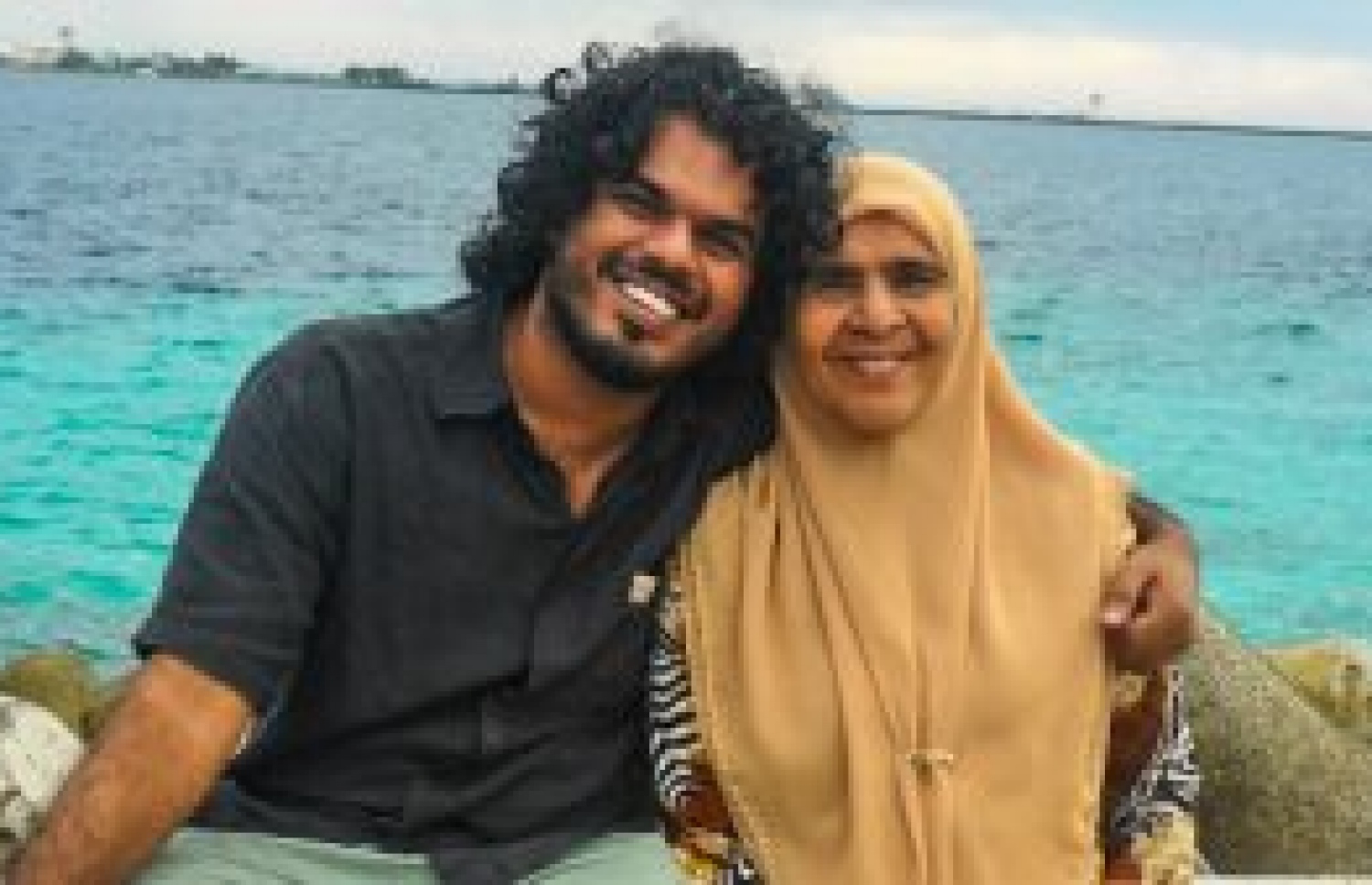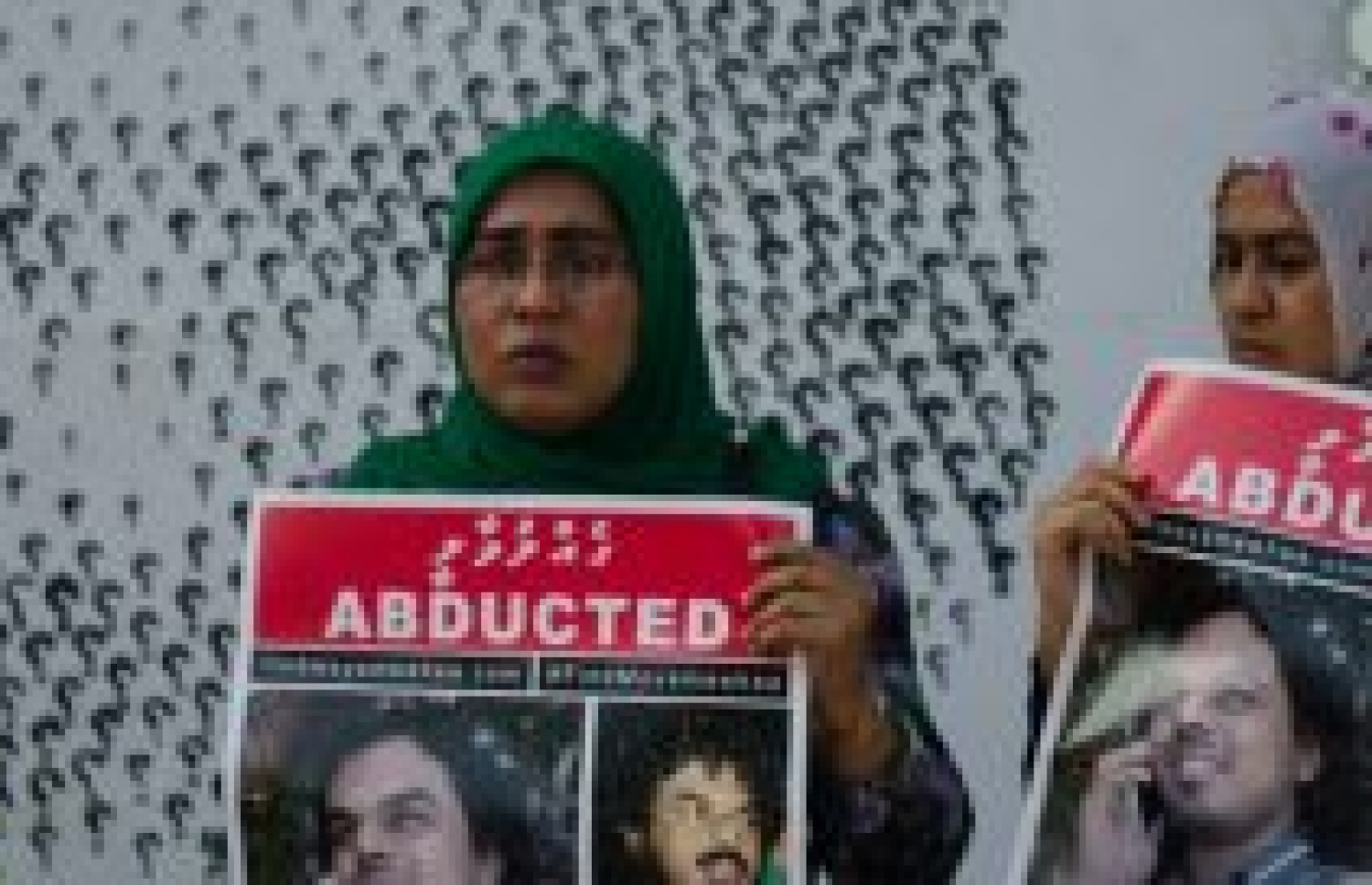by Yameen Rasheed
Two years ago, my friend Ahmed Rilwan spent the evening with his friends and family. A little before one in the morning, he parked his motorcycle outside the Hulhumalé ferry terminal and walked inside.
Four days and several dozen anguished phone calls later, Rilwan was reported missing.
A CCTV capture of him walking into the passenger waiting area is the last image of him that we have in our possession. And we almost didn’t even have even this parting image.
After reviewing the CCTV footage, the police initially released a statement saying that there was no evidence of Rilwan having left for Hulhumalé. Luckily, Rilwan’s family got hold of the same CCTV footage, reviewed it at home and identified him.
The incorrect police statement was not withdrawn.
In fact, it would take a total of 609 days for police to acknowledge that Rilwan did board the ferry to Hulhumalé. That he was, in fact, abducted. That there was, in fact, a DNA match from the samples obtained from the red car. That at least one identified culprit was allowed to flee the country’s borders.
609 days. Over an year and a half - not to solve the case, but to acknowledge the most basic facts of his disappearance.
At the time of writing, not a single suspect is in custody.
The search for Rilwan has forced me to confront strange feelings that I had never imagined before, and experiences I never wish to live again.
On the morning of 15 August 2014, friends and volunteers from the public gathered at a hut near the ferry terminal in Hulhumalé to conduct an island wide search for Rilwan.
We had prepared a map and organized search teams.
I was helping coordinate the search, but it would prove no easy task. I realized that I had to instruct the volunteers to keep an eye out for recently disturbed topsoil, or for what may look like a fresh burial site - but every time I tried, the words would get stuck in my throat.
It was just such a horrifying thing to say. Especially since even at that point in time

, we still held out foolish hopes that he had just gone to some island and had forgotten to tell us.
At one point, a search team exploring a remote area of the island reported back saying they detected a horrid smell of decomposition.
Following the smell, they went ahead and investigated further; it turned out to be the carcass of a dead cat.
It was only when I heard those last words that I found I could actually breathe again.
There was a time I would call up Rilwan every time I visited Hulhumalé. We had had long conversations by the sea, visited local cafes for tea, hung out late at night with friends, lying on the beach - watching shooting stars streak across the sky. I felt those were the moments when Rilwan was the happiest.
Today I find it difficult to visit that island filled with his memories. To this day, the sight of that hut near the ferry terminal gnaws at me.
Right from the first time I met him in 2009, Rilwan has been my moral compass. He was truly one of a kind - extraordinarily kind, gentle and incredibly intelligent. He loved poetry and books, and had an expansive knowledge of dhivehi culture and vocabulary - for which he credited his mother.
He also had an incredible sense of humour, and an infectious grin. I am used to automatically smiling when I see his face. I was once sitting at a cafe at the West Harbour in Malé and seeing a poster on the cafe wall with his grinning face on it, and I found myself smiling back out of habit.
It is easy for others to underestimate the pain loved ones go through in a case like this.
The day after he was reported missing, I remember being present in the room as another friend of Rilwan prepared the first missing person poster. We somehow put together some photographs, and put a family member’s phone number under them for the public to report any information.
Afterwards, though, we had to change the phone number, because his grief stricken sister was in no condition to answer calls.
None of the things we had to do in the past two years - carrying bundles posters with Rilwan’s face on it, or rallying with signboards with his name on it - has been easy.
The public has seen Rilwan’s family in press conferences, giving calm, measured statements. But it is close friends who hear the painful sobs echoing in the halls long after the cameras and journalists have left.
These private moments of grief do not get any easier to bear.
Rilwan’s mother did such a wonderful job of raising a decent, kind and compassionate son. In her old age, she deserves to be retiring in peace - not being pepper sprayed, or pushed around by police, or desperately begging on the streets for information on the whereabouts of her child.
Despite all this, Rilwan’s family - his mother in particular - has been an shining example of courage. Refusing to suffer in silence, they channeled their distress and sorrow into action.
I had never met Rilwan’s family before the tragedy. But seeing their extraordinary, superhuman efforts over two years, I am convinced that courage is perhaps genetic.
The family’s pleas have fallen upon deaf ears. To this day, the President refuses to meet the family, or comfort them, or listen to their woes. It feels like mockery when we see images in the media of the same president posing with random street gangs and inaugurating restaurants.
The only solace we get is the outpouring of support from across the country for Rilwan.
The cowards who took him could not have imagined that two years later, people would still keep talking about Ahmed Rilwan. He touched so many lives with his humour, his poetry, his words and his tweets. He would not be forgotten so easily.
Deep inside, I find some peace that Rilwan remains in our hearts every moment of every day - but the cowards who took him away won’t matter. They will be forgotten, and would have left no mark on the world the way Rilwan has. Perhaps they didn’t get the same affection and love and upbringing Rilwan received, to have done something so cruel, so completely heartless.

Two years later, one must ask: what more could Rilwan’s family possibly do? Last year on this day, the Maldives Police Service attacked a silent rally by the family on the street in full media glare, beating up and dragging away one family member, assaulting Rilwan’s mother and sisters - spraying some chemical irritant into eyes already filled with sorrow.
For two years, a family of ordinary means has struggled to seek justice in vain. It might be tempting for some to move on from Rilwan’s case; to put it behind as some kind of unsolvable mystery, and lock it away in the back of one’s mind.
And yet, we know someone did this. Someone gave the order to abduct Rilwan. Someone carried it out. Someone organized a car and transported it back and forth from Hulhumalé. Someone owned the car. Someone drove the car. Someone dropped the knife.
Police even clearly identified the man who followed Rilwan around all night on a motorbike. Yet, someone made the arrangements to fly that man abroad safely. Someone ordered the police to keep this information hidden from the public until the man had fled the country.
Someone did issue serious death threats to family and friends involved in the campaign to find Rilwan.
For 609 days, someone did make the police publicly deny any link between the Hulhumalé abduction and Rilwan’s disappearance. Someone made the police to initially misrepresent the facts about the DNA evidence.
It is evident that somebody has been protecting the evil people who did this to our Rilwan. And that somebody is still out there, and here we are, two years later, still without the answers we seek.
Editor's note: Yameen Rasheed is a close of friend of missing journalist Ahmed Rilwan and a renowned freelance political commentator.